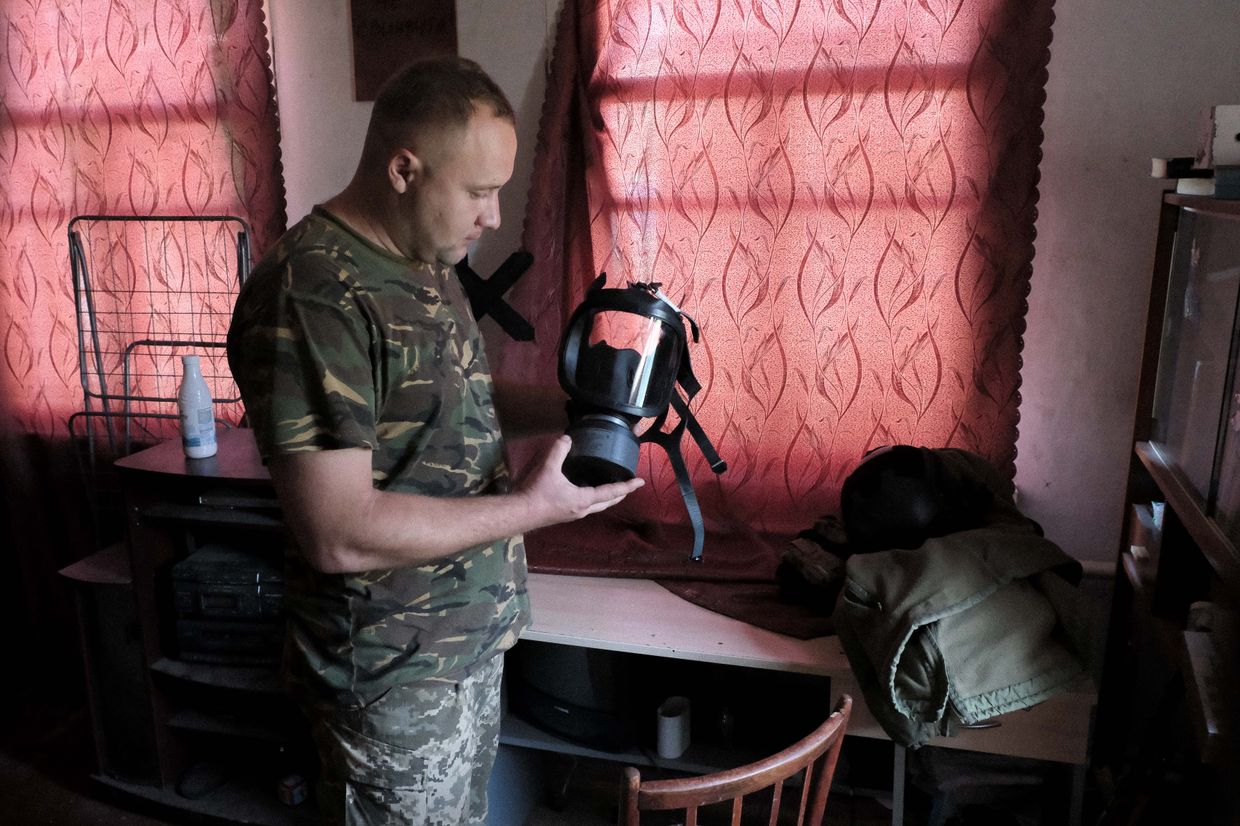Ukraine reports increase in Russian chemical weapon attacks on battlefield

Ukraine recorded 715 cases of Russian chemical weapons use on the battlefield in May, 271 more than in the previous month, the Ukrainian military's Support Forces said on June 24.
In a post on Facebook, the Support Forces said most cases were of CS gas, also referred to as tear gas and typically used as a crowd-control agent by law enforcement agencies around the world.
Although less lethal than other chemical weapons, it was used extensively in World War I before the 1925 Geneva Protocol prohibited the use of chemical and biological weapons in war.
The Support Forces said that, from Feb. 15, 2023 to May 24, 2024, a total of 2,698 cases had been recorded which had led to 1,385 incidents of Ukrainian soldiers needing medical attention.
Ukrainian military officials have previously accused Russia of using chloropicrin and other chemical weapons.
Chloropicrin is often used as an herbicide. According to the U.S. Centers for Disease Control (CDC), exposure to its vapors can cause severe irritation to the skin, eyes, and, if inhaled, internal organs.
The Organization for the Prohibition of Chemical Weapons (OPCW) said on May 7 that accusations from both Ukraine and Russia that the other has used chemical weapons during the full-scale invasion remain "insufficiently substantiated."
"Both the Russian Federation and Ukraine have accused one another and reported allegations of use of chemical weapons to the Organization," the OPCW said in a statement.
"The information provided to the Organization so far by both sides, together with the information available to the Secretariat, is insufficiently substantiated."
The OPCW said the situation "remains volatile and extremely concerning" and reiterated that it was against international law to use "riot control agents at war on the battlefield."
The organization also noted it had not received official requests to investigate the use of chemical weapons from either Ukraine or Russia.














